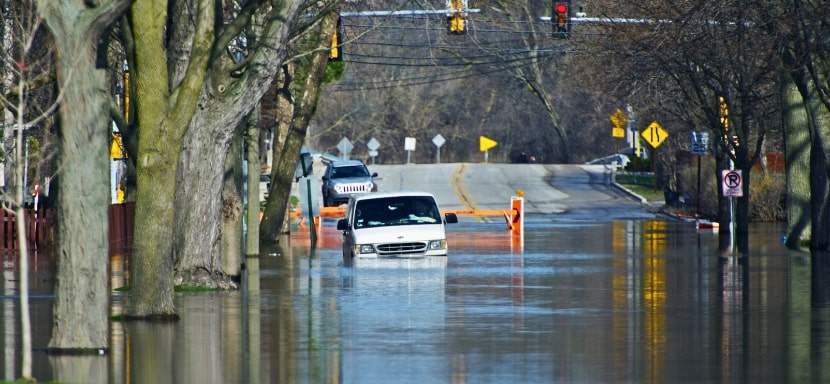How to Survive an Election Year

An election year can feel like a whirlwind. The news is relentless, conversations are heated, and everyone seems to have opinions. Political ads bombard our screens, social media platforms become battlegrounds for debates, and the overall tension can infiltrate even the most casual interactions. It’s easy to feel overwhelmed and drained by the constant influx of political discourse.
However, there are effective strategies to stay sane and grounded amidst the chaos. Adopting a few practical tips can shield you from stress and maintain your well-being. This guide will help you navigate the stormy waters of an election year with grace and resilience, ensuring you emerge with your peace of mind intact.
Key Takeaways:
- Set Boundaries: Limit media consumption and manage social media to reduce stress.
- Engage Constructively: Focus on listening, respecting opinions, and fact-checking information.
- Prioritize Mental Health: Practice self-care and seek professional support if needed.
The Election Year Frenzy
Election years are naturally chaotic. The constant media coverage, social media debates, and political advertisements can create a high-pressure environment. Recognizing that this frenzy is a temporary part of the democratic process can help you manage your expectations and emotions.
10 Quick Tips on Surviving an Election Year
Navigating an election year can be challenging with the constant flow of information and heightened emotions. Here are ten quick tips to help you maintain your sanity and well-being during this tumultuous time.
1. Limit News Consumption: Set specific times to check the news rather than having it on constantly. This reduces anxiety and helps you stay informed without becoming overwhelmed.
2. Curate Your Social Media: Follow reliable sources and unfollow or mute accounts that post inflammatory content. This will create a more balanced and less stressful feed.
3. Create Politics-Free Zones: Dedicate certain areas of your home or times of the day to be free from political discussion. This helps create a mental sanctuary.
4. Practice Mindfulness and Relaxation: Incorporate mindfulness techniques such as meditation, deep breathing exercises, or yoga to help manage stress and stay grounded.
5. Engage in Constructive Conversations: Focus on listening rather than reacting during political discussions. Respect different opinions and aim for understanding over agreement.
6. Stay Active: Physical activity can be a great stress reliever. Regular exercise helps clear your mind and improves your overall well-being.
7. Volunteer: Channel your political energy into positive action by volunteering for causes or campaigns you believe in. This provides a sense of purpose and contribution.
8. Fact-Check Information: Verify its accuracy through reputable sources before sharing or acting on political information. This helps prevent the spread of misinformation.
9. Seek Support: If the stress of election year becomes overwhelming, don’t hesitate to seek support from friends, family, or a mental health professional.
10. Focus on Self-Care: Engage in activities that bring you joy and relaxation, whether reading, hobbies, or spending time with loved ones. Prioritize your mental health.
Setting Boundaries
Limit Media Consumption
In an election year, the news cycle operates 24/7, often amplifying stress and anxiety. It’s crucial to stay informed, but equally important to limit your exposure to news. Designate specific times to catch up on updates rather than allowing constant notifications to dictate your day.
Manage Social Media
Social media can be a minefield during election seasons. Misinformation spreads quickly, and heated arguments are common. Set boundaries for your social media use by scheduling breaks and curating your feed to include reliable sources. Consider unfollowing or muting accounts that consistently post inflammatory content.
Create a Safe Space
Your home should be a refuge from the election year madness. Dedicate areas or times for politics-free zones, where conversations about the election are off-limits. This practice can provide much-needed mental breaks.
Did You Know?
Election years often cause increased stock market volatility due to uncertainty about potential changes in economic policies and leadership.
Engaging in Constructive Conversations
Listen Actively
When discussing politics, focus on listening rather than reacting. This approach fosters understanding and reduces the likelihood of arguments. Acknowledging that everyone’s experiences and perspectives are different can lead to more productive conversations.
Respect Different Opinions
It’s natural to encounter differing opinions, especially during an election year. Respecting others’ viewpoints, even when disagreeing, is essential for maintaining relationships and a healthy discourse. Remember, it’s okay to agree to disagree.
Stay Informed and Fact-Check
Before engaging in political discussions, ensure your information is accurate. Rely on reputable sources and fact-check claims. This habit enhances the quality of conversations and helps spread accurate information.
Prioritizing Mental Health
Practice Self-Care
Election years can be mentally exhausting. Prioritize self-care by engaging in activities that relax and rejuvenate you. Exercise, hobbies, and spending time with loved ones can provide necessary respite from the political noise.
Seek Professional Support
If the election cycle significantly impacts your mental health, consider seeking support from a mental health professional. Therapists can provide strategies to cope with stress and anxiety, ensuring you maintain your well-being.
Getting Involved Positively
Volunteer
Channel your political energy into positive actions by volunteering for campaigns or organizations that align with your values. Volunteering supports your preferred candidates or causes and provides a sense of contribution and purpose.
Engage in Local Politics
Local politics often have a more immediate impact on your community than national elections. Get involved in local initiatives, attend town hall meetings, and connect with local representatives. This involvement can provide a tangible way to make a difference.
Educate Others
Share accurate information and educate those around you about voting and understanding the issues. Encouraging informed participation can foster a healthier democratic process.
Maintaining Perspective
Remember the Big Picture
Election years, while intense, are part of a larger democratic process. Regardless of the outcome, life goes on, and society’s collective progress continues. Keeping this perspective can help reduce the anxiety associated with election outcomes.
Focus on What You Can Control
Many aspects of an election year are beyond your control. Instead of fixating on these, concentrate on what you can influence – your actions, responses, and immediate environment.
Stay Hopeful
Despite the division and uncertainty that often accompany election years, remain hopeful. Democracy naturally involves diverse opinions and the continuous striving for a better society. Trust in the process and the potential for positive change.
The Importance of Voting
Make Your Voice Heard
Voting is a fundamental right and a critical way to participate in the democratic process. Ensure you are registered, informed about the candidates and issues, and prepared to vote. Your vote is your voice, and it matters.
Encourage Others to Vote
Promote the importance of voting within your community. Whether through conversations, social media, or local events, encouraging others to participate strengthens the democratic process.
Stay Engaged Beyond the Election
The election is only one part of civic engagement. Stay involved in political processes and community initiatives year-round. Continued participation fosters a more engaged and informed citizenry.
FAQs
Why is it important to vote?
Voting is a fundamental right and a way to participate in the democratic process. It allows you to have a say in the direction of your community and country.
How can I stay informed without getting overwhelmed during an election year?
Limit your media consumption to specific times of the day and rely on reputable sources. This approach keeps you informed while reducing stress.
How can I manage social media stress during an election year?
Schedule breaks from social media and curate your feed to include reliable sources. Consider unfollowing or muting accounts that post inflammatory content.
What are some ways to practice self-care during an election year?
Engage in activities that relax and rejuvenate you, such as exercise, hobbies, and spending time with loved ones. Seek professional support if needed.
How can I get involved positively in politics?
Volunteer for campaigns or organizations that align with your values engage in local politics and educate others about the importance of voting.
What should I do if political discussions with friends or family become too heated?
Set boundaries for political discussions and focus on listening rather than reacting. Respect differing opinions and agree to disagree when necessary.
Conclusion: How to Survive an Election Year
Surviving an election year requires staying informed, setting boundaries, and maintaining mental well-being. By engaging constructively, prioritizing self-care, and staying hopeful, you can navigate the complexities of the political season with resilience and optimism.
Fascinating Facts About Election Years
Election years are pivotal moments in a nation’s political landscape, filled with unique phenomena and historical significance. Here are some intriguing facts about election years:
- Stock Market Volatility: Election years often see increased stock market volatility due to uncertainty about future economic policies and leadership.
- Voter Turnout Trends: Voter turnout typically increases during presidential election years compared to midterm elections, reflecting heightened public interest and participation.
- Incumbency Advantage: Incumbent candidates generally have a higher chance of winning re-election, benefiting from greater name recognition and established political networks.
- Economic Impact: Election outcomes can significantly influence economic policies, affecting markets, business confidence, and consumer spending.
- Media Coverage: Election years bring a surge in media coverage, with extensive focus on candidates, debates, and political ads, often leading to information overload for the public.
- Campaign Spending: The cost of running election campaigns has skyrocketed, with billions of dollars spent on advertising, rallies, and voter outreach.
- Historical Firsts: Election years often mark historical milestones, such as the first female, minority, or youngest candidates elected to high office.
- Swing States: Certain states, known as swing states, receive disproportionate attention during presidential elections due to their potential to sway the overall result.
- Debates and Conventions: Presidential debates and party conventions are significant events during election years, shaping public perception and voter decisions.
- Polling Variability: Polls can fluctuate widely during an election year, influenced by current events, debates, and changing voter sentiments.
More Real Life Scenarios
How to Survive a Layoff
Layoffs feel personal—even when they’re not. One day, you’re responding to Slack messages and forwarding…
How to Survive a Drug Test
I never imagined I’d be so emotionally invested in a paper cup. But there I was, standing under the fluorescent…
How to Survive an Interrogation
If you’ve ever been caught in the crosshairs of an overly enthusiastic mall cop or stared down by someone…
How to Survive a Bachelor Party
A bachelor party is a delicate mix of celebration, chaos, and questionable decision-making, wrapped…
How to Survive Your First Time at the Gym
Walking into a gym for the first time can feel like stepping into an alien world. The machines hum with…
Recent Survival Posts
How to Survive a Layoff
Layoffs feel personal—even when they’re not. One day, you’re responding to Slack messages and forwarding…
How to Survive a Drug Test
I never imagined I’d be so emotionally invested in a paper cup. But there I was, standing under the fluorescent…
How to Survive an Interrogation
If you’ve ever been caught in the crosshairs of an overly enthusiastic mall cop or stared down by someone…
How to Survive a Nightclub Shooting
Nightclubs pulse with life—lights flashing, music pounding, bodies packed tight on the dance floor. It’s a place to…
How to Survive a Bachelor Party
A bachelor party is a delicate mix of celebration, chaos, and questionable decision-making, wrapped…
More Real-Life Survival Scenarios

How to Survive a Drug Test
The Cup, The Room, The Truth I never imagined I’d be so emotionally invested in a paper cup. But there I was, standing under the fluorescent hum of a strip-mall clinic, trying to recall the last time I ate a poppy seed bagel. That’s the thing about drug tests—they...

How to Survive an Interrogation
If you've ever been caught in the crosshairs of an overly enthusiastic mall cop or stared down by someone in a uniform with a clipboard and a glare, you’ve felt it — the chilly fingers of interrogation anxiety. And while most of us imagine interrogation scenes as...

How to Survive a Bachelor Party
A bachelor party is a delicate mix of celebration, chaos, and questionable decision-making, wrapped in the noble intention of sending the groom off into married life with a night he’ll (hopefully) remember. It’s a ritual as old as time—well, as old as men deciding...

How to Survive Your First Time at the Gym
Walking into a gym for the first time can feel like stepping into an alien world. The machines hum with purpose, the regulars move confidently, and you’re left standing there, clutching your water bottle, wondering whether you’re in the right place—or on the right...

How to Survive a Missed Package Delivery
Life throws curveballs. One moment, you’re eagerly waiting for your package like a kid on Christmas morning, and the next, there’s a smug little note stuck to your door. A missed package delivery. It feels like a breakup letter from the universe. But don’t worry—I’ve...
More Survival Scenarios

How to Survive a Layoff
When the Floor Falls Out: The Reality of a Layoff Layoffs feel personal—even when they're not. One day, you're responding to Slack messages and forwarding emails. Next, you're staring at your monitor as it logs you out... for good. Whether it's a restructuring, a...

How to Survive a Drug Test
The Cup, The Room, The Truth I never imagined I’d be so emotionally invested in a paper cup. But there I was, standing under the fluorescent hum of a strip-mall clinic, trying to recall the last time I ate a poppy seed bagel. That’s the thing about drug tests—they...

How to Survive an Interrogation
If you've ever been caught in the crosshairs of an overly enthusiastic mall cop or stared down by someone in a uniform with a clipboard and a glare, you’ve felt it — the chilly fingers of interrogation anxiety. And while most of us imagine interrogation scenes as...

How to Survive a Nightclub Shooting
Nightclubs pulse with life—lights flashing, music pounding, bodies packed tight on the dance floor. It’s a place to escape, feel the rhythm, and lose yourself in the crowd. But that same energy can turn deadly in seconds, transforming a night of fun into one of the...

How to Survive a Bachelor Party
A bachelor party is a delicate mix of celebration, chaos, and questionable decision-making, wrapped in the noble intention of sending the groom off into married life with a night he’ll (hopefully) remember. It’s a ritual as old as time—well, as old as men deciding...

How to Survive Your First Time at the Gym
Walking into a gym for the first time can feel like stepping into an alien world. The machines hum with purpose, the regulars move confidently, and you’re left standing there, clutching your water bottle, wondering whether you’re in the right place—or on the right...

How to Survive a Worldwide Communications Breakdown
Imagine waking up to silence. Your phone doesn’t buzz, your email won’t load, and even your local radio station crackles with static. A worldwide communications breakdown has hit. What next? For many, this doomsday scenario may sound like the opening lines of a...

How to Survive a Flash Flood While Driving
Surviving a flash flood while driving requires quick thinking, calmness, and a solid plan to ensure your safety. Preparation can make all the difference between a close call and a catastrophe in emergencies like this. This guide provides practical advice to protect...

How to Build an Emergency Kit
Emergencies don’t knock politely at the door. They barge in, uninvited, like a distant relative with a penchant for drama, turning your world upside down without warning. Whether it’s a power outage, a natural disaster, or an unexpected evacuation, the key to staying...

How to Protect Yourself From Insects in the Wild
There’s nothing like being out in the wild—birdsong echoing through the trees, the fresh scent of earth, and a deep sense of peace that makes you think, “Ah, this is what life is about.” But then comes the buzzing. Mosquitoes, ticks, and flies swoop in like uninvited...
